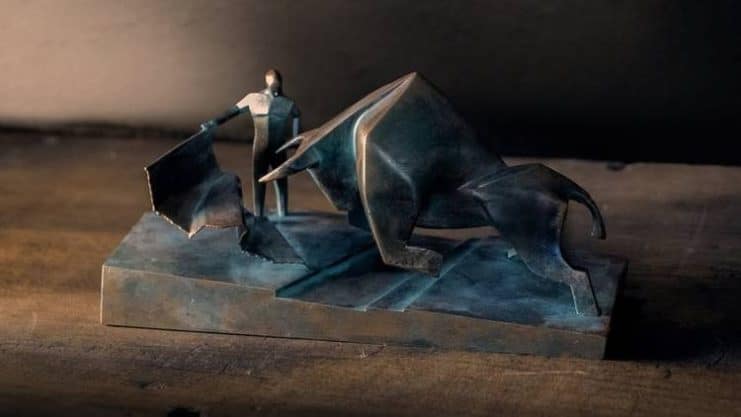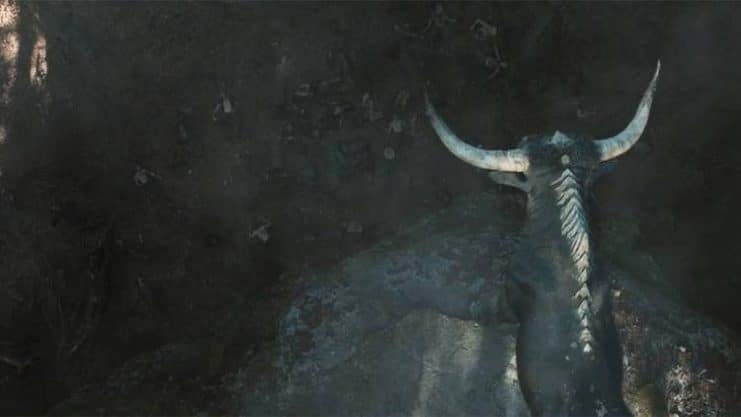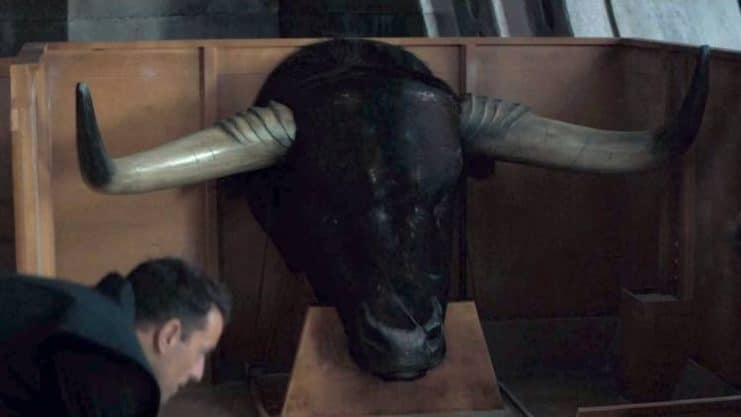
The Salusian bull scene in Dune: Prophecy reveals an unexpected twist in the saga
Deep into the plot Dune: Prophecy, The figure of the Salusian bull takes on fundamental importance, weaving together symbolisms that resonate across lineages and the story. This week, the episode “Above Brotherhood” leaves us stunned by the action of Tula Harakonnen (Emma Canning), who destroys all the men of House Atreides, including her fiancé, Orry Atreides (Milo Callaghan). During a planned hunt for a Salusia bull in Caladan, all men meet their end and the animal, instead of attacking Tula, simply walks away.
The legacy of the Salusian bull in House Atreides
The bull is more than just a beast in the narrative of Dune; it’s a emblem of power, tragedy and destiny intertwined with House Atreides. Originally from Salusa Secundus, This bull not only symbolizes majesty and ferocity, but also the fatalistic nature of those who seek to master power.. It is worth remembering that Duke Paulus Atreides, Letona’s father, met his death at the hands of one of these bulls, an event prefigured by the secret poisoning of the animal by Duchess Elena Richese, in a final act of the marital conflict.

Tula Harakonnen and the symbolism of the bull
For Tula, the Salusian bull adopts a deeply personal and strategic meaning. In his explanation to Albert (Archie Barnes) on how to lure a bull using a local rabbit, he reveals not only his knowledge of hunting but also his willingness to manipulate and control. The scene is a powerful metaphor for him transformation from prey to predatorusing the hunt as a pretext to execute his true plan: the elimination of the Atreides men.
In this plot of betrayal and power, Tula not only disguises herself under the name “Tula Veil” to hide her Harkonnen heritage but, metaphorically, becomes the Salusian bull, dominate power games to which she was destined to succumb. Just as the bull represented a fatal outcome for Duke Paul, it symbolizes for Tula need to overcome your initial nature and face the reality of his lineage and his destiny.


Reflections on power and caution
This episode offers a reflection on how the powerful, in their desire to entertain and dominate, can easily lose sight of your core responsibilities. Hunting, although a typical aristocratic pastime, turns out to be a dangerous activity, full of symbolism and tragic potential. Tula and the Salusian bull emerge not only as hunters but as heralds of a new order, reminding everyone that in the game of power, hunters can often become prey.
Dune: Prophecy airs on Max, with new episodes every Sunday. This episode not only advances the plot, but delves deeper cultural and personal legacy of its characterspromising more twists and revelations in the chapters to come.


A closer look at Tula Harakonnen
Tula Harakonnen, more than just a character Dune: Prophecyrepresents the duality between survival and betrayal in a universe where power determines destiny. His development over the course of the series shows an evolution from one figure seemingly vulnerable to one ruthless strategistreflecting the complexity of the power dynamics within the saga. This transformation not only highlights his cunning, but also highlights the use of his intelligence and resources to navigate and manipulate the world intricate webs of loyalty and power.
Comparing Tula to other characters in the franchise, like Paul Atreides or Baroness Harkonnen, you see a parallel in their ability to use cunning instead of brute force. However, Tula stands out for its ability to turn its perceived weaknesses into strategic advantages, a characteristic that characterizes it Baroness Harkonnen also performed, albeit in a much more ruthless and less covert style. The way Tula handles the situation in “Por Encima de la Hermandad” is a clear example of this perception can be as powerful as reality itself in the arid and complex landscape.